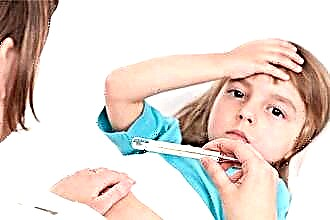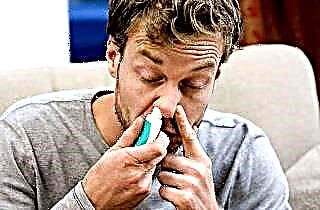Why does my ear hurt when swallowing? This symptom clearly indicates the development of a pathological process in the body. Unpleasant sensations in the ear canal can occur with many disorders of the ENT organs. However, most often, pain in the ear when swallowing bothers a person with external and otitis media. How to alleviate the patient's condition in such a situation? We will talk more about the factors contributing to the development of such a pathological phenomenon and methods of its elimination further.
Reasons for violation

The causes of pain in the ear when swallowing are varied. This phenomenon can be a symptom of many diseases:
- often, when swallowing, pain radiates to the ear in case of inflammation affecting different parts of the ear - otitis media, mastoiditis.
- pain in the ear when swallowing can be felt with the development of angina, pharyngitis, laryngitis.
- with sinusitis, sinusitis, purulent masses can penetrate into the auditory tube, thereby provoking the development of inflammation. In such a situation, the mucous membrane swells, and painful sensations arise.
- if the ear hurts when swallowing, the cause may be mumps, which occurs as a result of bacteria or viruses in the salivary glands.
- if the pain when swallowing radiates into the ear, the cause may be inflammation of closely located lymph nodes.
To determine an accurate diagnosis, a number of diagnostic measures are required. Let's talk in more detail about the most common cause of pain in the ear cavity when swallowing - about otitis media.
Causes and symptoms of pathology
There are a number of factors that contribute to the onset of otitis media and accompanying painful sensations. The most common causes of pathology are:
- disruption of the normal functioning of the immune system;
- chronic diseases of the nasopharynx;
- genetic predisposition;
- the specific structure of the ENT organs (nose, throat, ears), which are interconnected by the Eustachian tube.
If your ear hurts when you swallow - this is one of the symptoms of inflammation of the organ of hearing.
An increase in painful sensations indicates the development of purulent otitis media.
In such a situation, other characteristic signs arise:
- increase in temperature indicators up to 38 ° C and above;
- Strong headache;
- discharge of purulent masses from the ear cavity;
- edema, itching, hyperemia of the skin in the ear area;
- the occurrence of noise, ringing, congestion in the ears;
- pain can radiate to the neck, eyes, teeth.
If your ear hurts and it hurts to swallow, you need to act immediately and start appropriate treatment as soon as possible.
The disease can very quickly turn into a chronic form and treatment in this case will be more complex and prolonged. It is also possible to develop severe complications - meningitis, encephalitis and other dangerous diseases that can lead to an abscess of the brain tissue.
Urgent care
What to do when ear hurts when swallowing? If it is given to the ear, especially in a child, the painful sensations should be relieved as soon as possible. If it is not possible to immediately seek help from a doctor, the following effective methods will help to relieve pain:
- drip vasoconstrictor drops (Naphthyzin, Galazolin) into the nasal cavity. Under the influence of the drug, the edema of the mucous membrane of the auditory tube decreases, air circulation is normalized, as a result, the pressure inside the ear cavity is evened out.
- take an anesthetic tablet (Ibuprofen is considered the most acceptable for children).
- to provide protection to the sick ear from the negative influence of environmental factors (wind, cold, moisture). For this purpose, a cotton swab should be inserted into the ear canal.
- every 2-3 hours, rinse the nasal cavity with saline or instill 1-2 drops of the product in each nostril. This will help to moisturize the mucous membrane, and prevent the reproduction of pathogenic microflora.
- if the integrity of the tympanic membrane is not violated, a cotton turunda, previously soaked in camphor or sunflower oil, can be placed in the ear cavity.
It is dangerous to perform warming compresses without the appointment of a specialist. This can help spread the infection.
Remember that home remedies are just a temporary measure. Traditional medicine recipes cannot be used as an alternative to traditional methods of treatment.
 The use of medicines prescribed by a specialist is mandatory.
The use of medicines prescribed by a specialist is mandatory.
Drug therapy
If it hurts to swallow and gives it to the ears, medicines will help eliminate the discomfort. But medications can be used only after the correct diagnosis has been established. To date, the following drugs are the most effective:
- Sofradex. These are ear drops with antibacterial action. The drug has a negative effect on streptococcal, staphylococcal, bacterial microflora. Produces a pronounced analgesic, anti-inflammatory and antihistamine effect. Relieves congestion in the ear, eliminates itching, edema, tissue hyperemia in the area of the hearing organ. Use the agent 3-4 drops 1-3 times a day.
- Garazon. The drug in the form of drops has an effective antifungal, bactericidal, antiviral effect. Eliminates painful sensations, relieves the inflammatory process. 2-4 times a day, 3-4 drops of the medicine are instilled into each ear.
- Anauran. Combined medication with antibacterial and analgesic properties. The drug contains broad-spectrum antibacterial substances and lidocaine. Use the remedy 3-5 drops every 3-4 hours.
Preventive actions
In order to prevent the development of many diseases, including diseases of the organ of hearing, it is necessary to follow certain rules of prevention. First of all, you need to review your diet. The diet should be balanced. Every day you need to eat fresh fruits and vegetables, which increase the body's defenses and help fight viruses.
Often, soreness in the ear area occurs after bathing. In order to prevent the development of pain and discomfort, you should swim only in clean waters. Paraffin ear plugs or cotton swabs with petroleum jelly will help prevent water from entering the ear cavity. When cleaning the ear canals, never use unsuitable items - hairpins, toothpicks, etc. Cotton swabs should also be used with caution. Experts strongly recommend that you clean only the outer part of the ear with cotton swabs and do not place them inside the ear canal.
It is extremely important to promptly treat colds and cleanse the ear cavity from mucous secretions.



